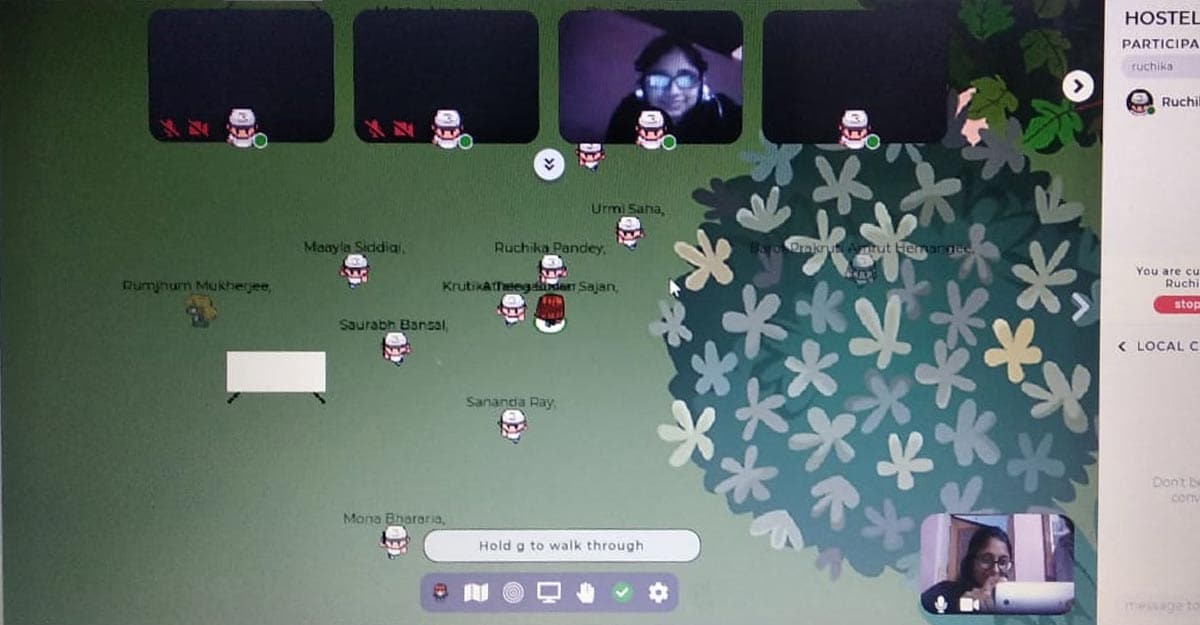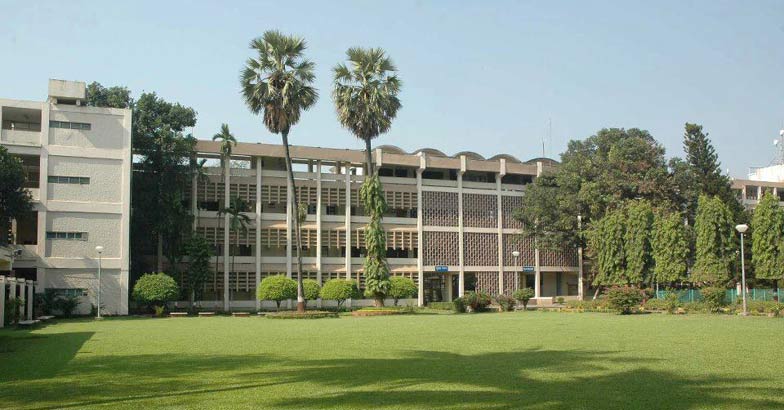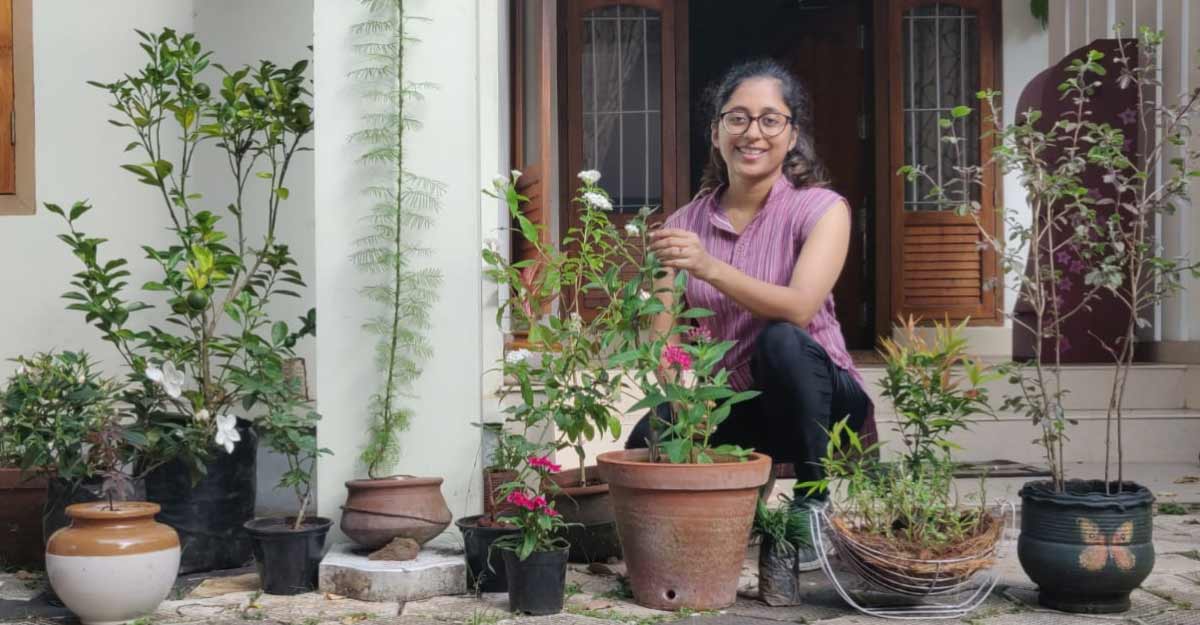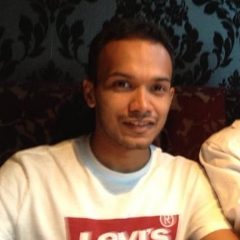Kerala girl's 'avatar' gets MTech certificate at IIT-Bombay's virtual convocation

Mail This Article
On August 23, when her name was called to come and pick up the graduation certificate at IIT-Bombay, Athena Susan Sajan was 1,400 kilometres away.
Peering into a computer screen from her home near Olassa in Kerala's Kottayam district, she saw with growing admiration a “virtual Athena” stepping eagerly on to the stage and receiving the certificate from the digital avatar of Prof. Subhasis Chaudhuri, the director of the institute.
Finally, her years of hard work had paid off. She is now an MTech in Chemical Engineering from one of the prestigious institutions in India, if not the world. Athena was proud. Her avatar on-screen too reflected the sentiment. Clutching the certificate, it posed for the invisible cameramen and smiled.
In the aftermath of the coronavirus pandemic and with their students now stranded across the country, IIT-Bombay did the near-impossible – a virtual convocation, the first of its kind.
“We wanted to provide the students with the same experience as an in-person event despite the restrictions posed by the pandemic,” the institute's statement read.
Athena, who had been looking forward to the event since it was announced in July, was very surprised at the level of detail that had gone into the making of this virtual spectacle. It was flawless.
“It exceeded my expectations,” Athena told Onmanorama. “I guess they (the institute) did not want to deprive us of the joy that we often associate with events like this. The very fact that this is the first of its kind is in itself something to marvel.”
“IIT Bombay must be lauded for this initiative, its thoughtfulness. There's no doubt that a lot of effort has gone into this,” she said.
Indeed. A 20-member team worked for over two months to bring alive this ambitious project, from creating the digital avatars to the procession – everything down to the finest of detail: the avatar's eager walk to the stage, the beaming smiles after receiving the degree certificate, and the entire ambience.
The process

As for the avatars, student and faculty were asked to send in photos of themselves which were then digitally mapped to form their virtual versions.
They were then prompted to install an app on their devices wherein the avatar would be downloaded in advance of the convocation.
When the event was telecast live on DD India and on the institute's social media platforms, it came alive on the app too.
“You'd definitely expect this sort of thing from IIT Bombay,” Athena said. “Even when the lockdown was announced, we students knew that the management will figure out a way. When the virtual event was first announced, we were no doubt thrilled.”
“While, of course, there were the usual nay-sayers. They were few and far between. A majority of the students embraced the idea wholeheartedly,” Athena added.
“The institute has a long history of breaking records and conventions. The virtual convocation was indeed consistent of that history. This departure from old ideas is reflected in the students too. Everyone here is a go-getter,” Athena, who has in the course of last year also managed to add proficiency in German to her already striking resume, added.
The institute believes so too. “Producing top quality graduates who would be the future leaders in the industry, research and academia is the principal goal of IIT-Bombay. The skill they acquired, the work culture they formed and the friends they made during their education here will support them to attain success in their lives. The whole country will look forward to their contributions in taking our nation ahead,” Prof. Subhasis Chaudhuri said during the convocation ceremony.
“Giving a virtual reality experience to all our graduates was not only a very innovative step but also a great effort by our professors and staff. They did it for the students. Hopefully, this will enthuse our graduates and also other engineers in India to think big and innovative.”
Prof Duncan Haldane, co-winner of the 2016 Nobel Prize, was roped in as the chief guest.
Though it was the first virtual convocation event, it is not the first virtual project the institute had tinkered with. Earlier during the lockdown, it released the entire layout of individual hostels on their Virtual Presence platform called Gather.

Each student, on signing in to the platform, got to move “a Mario-like” figure around the hostel. When it came in close proximity to another Mario-figure, a “Skype-like” video box opened wherein students could interact with each other. The more Mario-figures in your proximity-radius, the more video boxes.
“I could meet a lot of my friends this way, and even people whom I have not interacted as much. It was such a joy,” Athena said.
During the day of the convocation, this was extended to include the entire campus. Even faculty members were added to the platform.
According to Stephen Schwarzman, chairman, CEO and Co-Founder of Blackstone and guest of honour at the virtual event, India, with this young, ambitious, and tech-savvy population, is poised to stake its title as one of the world's pre-eminent innovation hubs.

Athena thinks so too. Now, during these days of lockdown and isolation, the young graduate is upskilling herself, preparing for a new tomorrow, while also keeping up her morning jogs and tending to her garden.


